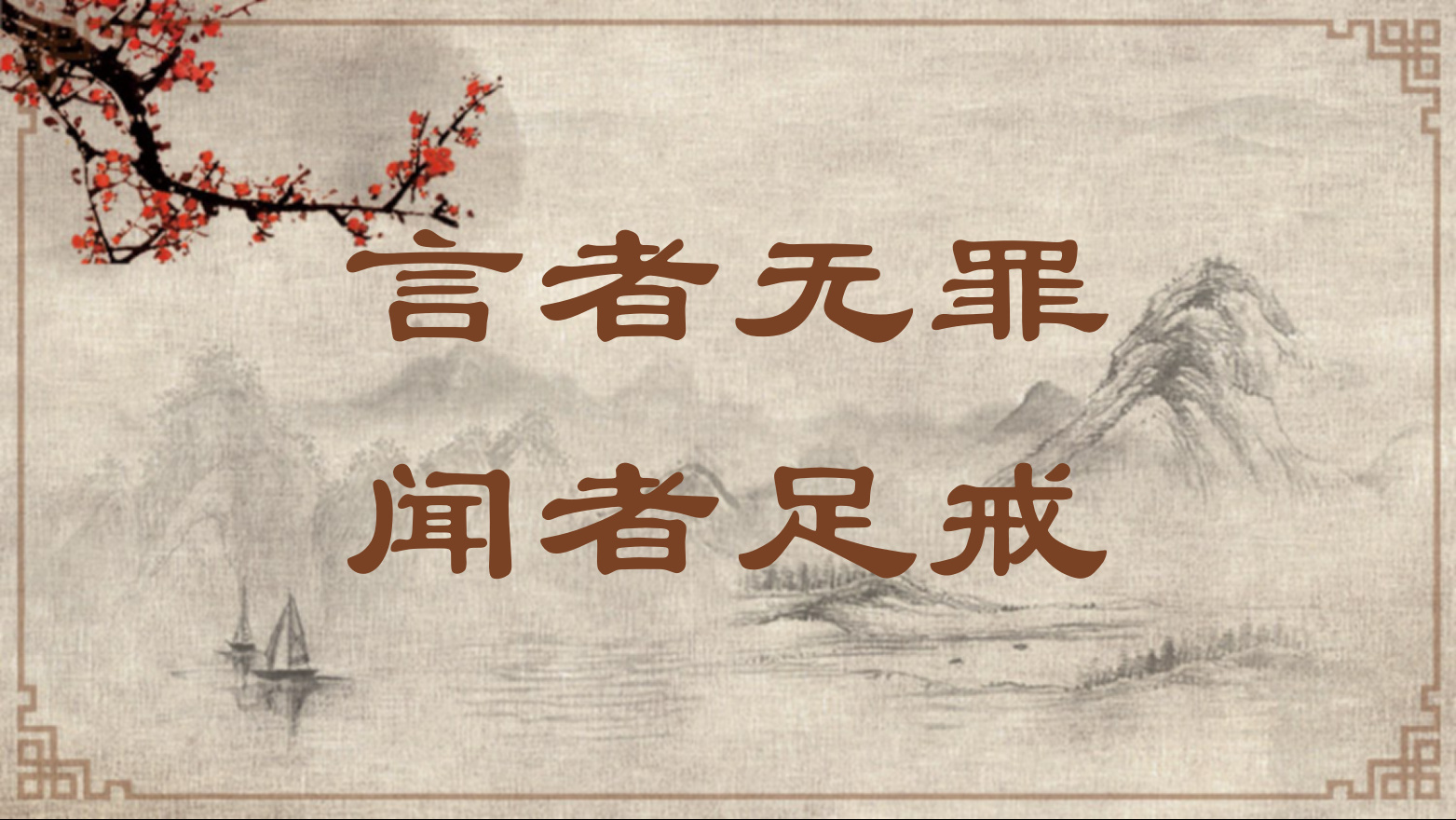Those Who Speak Shouldn't Be Punished While Those Who Listen Should Take Warning

无论意见是否正确,说的人没有罪责,而听的人足以获得警示。上到国家治理,下至组织、企业管理,执政者与管理者若要保障国家或组织、企业的良好运行,就必须充分了解下面的实际情况和群众意愿,调动各方面力量,发挥各方面作用。为此,必须造成一种健康和谐的人际环境,让人们畅所欲言,以便从各种言论中汲取有价值的意见。即便群众或下属所提意见不正确,领导者也不应责难,而要引以为戒。其中隐含言论自由的思想和宽容精神。
Whether their opinions are correct or not, people who speak their minds should not be penalized and their messages should not be lost on their listeners. The term implies freedom of speech and a tolerant attitude towards criticism. To ensure proper governance and operation of a country, an organization, or a company, those in power and in management should have a good understanding of the situation on the ground as well as people's needs and wishes, so as to mobilize all the segments of the society to play their roles. The way to achieve such a result is to create healthy and harmonious relationships among people and let them speak their minds without fear so those in power can benefit from their various opinions and valuable insights. Even when the criticism from the general public or one's subordinates is not fully justified, those in leading positions should take warning rather than condemn the critics.
引例 Citations:
◎上以风化下,下以风刺上,主文而谲谏,言之者无罪,闻之者足以戒。(《毛诗序》)
执政者用风诗教化百姓,百姓也用风诗讥刺执政者,用富于文采的诗歌对执政者含蓄委婉地进行劝讽,歌咏的人不会因此获罪,听闻诗歌的人足以引起警诫。
Rulers use feng (ballads) to cultivate the people and the people use them to ridicule the rulers. So long as a critic advises the monarch mildly and through beautiful poetry, he will not be found guilty and the monarch he criticizes will become more careful in making decisions. (Preface to Mao's Version of The Book of Songs)
◎言者无罪,闻者足戒。言者闻者,莫不两尽其心焉。(白居易《与元九书》)
说的人没有罪责,听的人引以为戒。说者和听者双方都一心想着把事情做好。
Those who speak their minds are not punished while those who listen should take warning. Both speakers and listeners only want to get things done in a satisfactory way. (Bai Juyi: Letter to Yuan Zhen)
推荐:教育部 国家语委
供稿:北京外国语大学 外语教学与研究出版社
责任编辑:钱耐安





